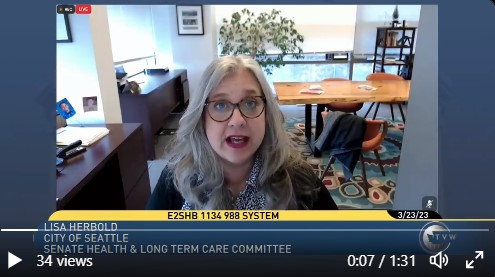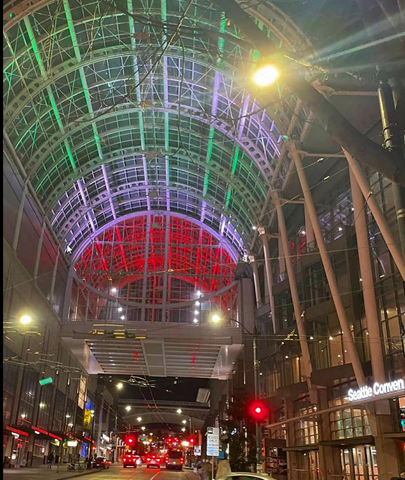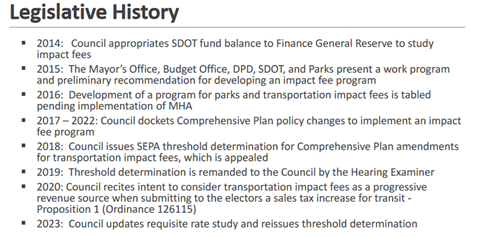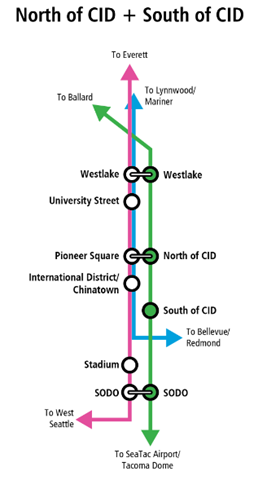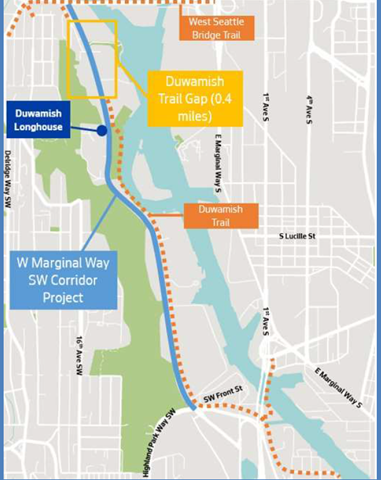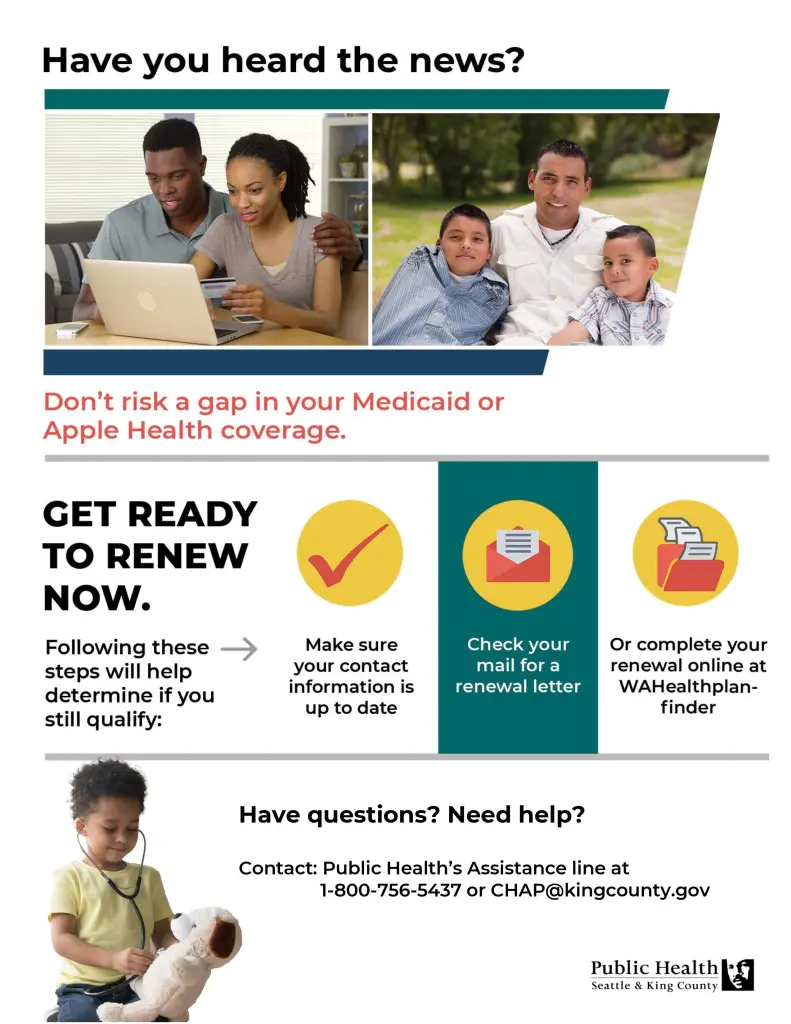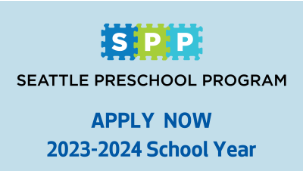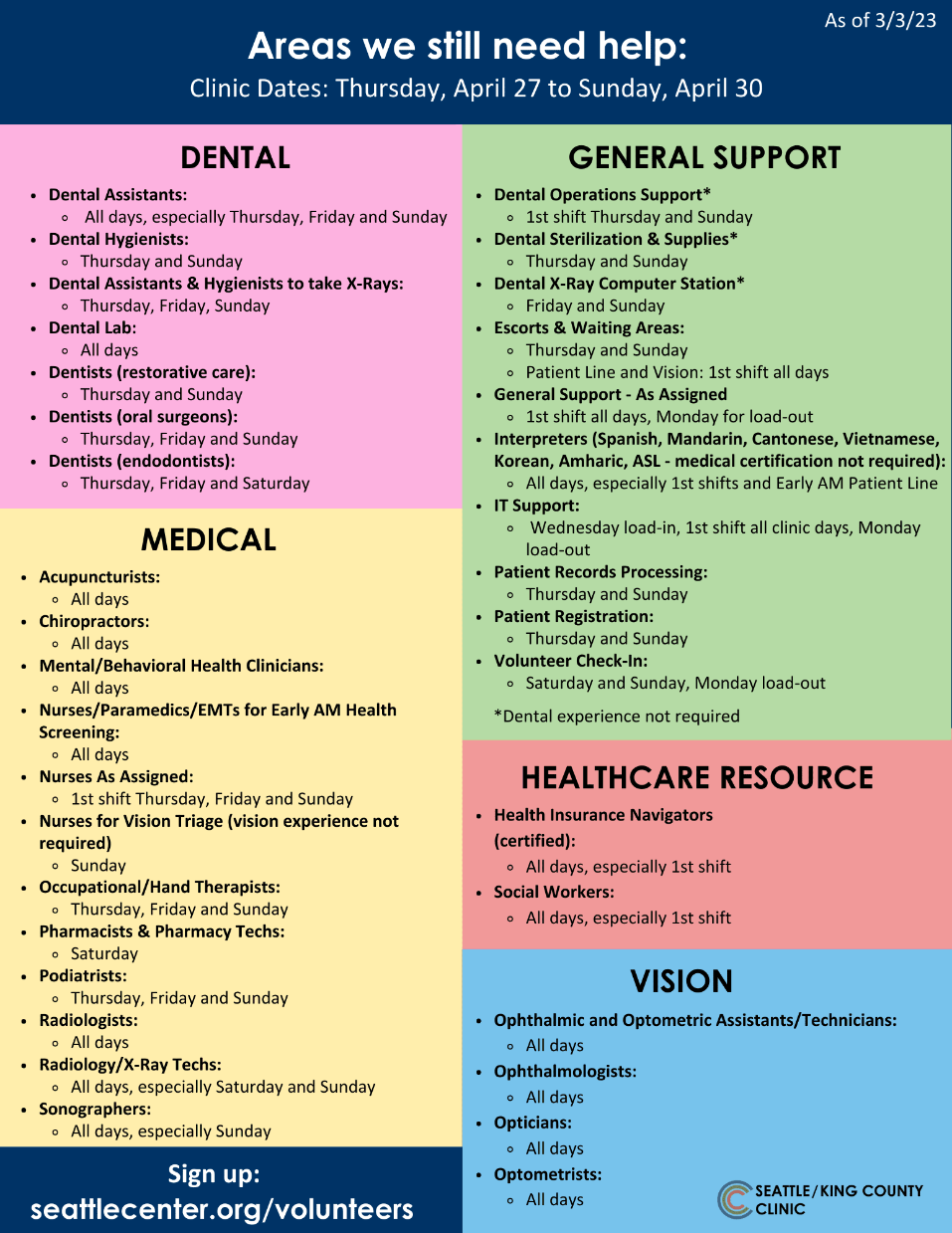Soaring Overdose Deaths / App-Based Workers’ Protections / 988 Implementation / Nowruz Proclamation / Impact Fee Projects, Presentations / Sound Transit Board Action / West Marginal Way Bike Lane Update / Have Apple Health? Time to Reconfirm! / Seattle Preschool Program Applications Now Open / Volunteer for Seattle/King County Clinic
Contents
- Soaring Overdose Deaths
- App-Based Workers’ Protections
- 988 Implementation
- Nowruz Proclamation
- Impact Fee Projects, Presentations
- Sound Transit Board Action
- West Marginal Way Bike Lane Update
- Have Apple Health? Time to Reconfirm!
- Seattle Preschool Program Applications Now Open
- Volunteer for Seattle/King County Clinic
Soaring Overdose Deaths
King County reported on a grim milestone recently: so far in the first quarter of this year, 296 King County residents died of drug or alcohol poisoning. This exceeds the total number of overdose deaths in all of 2012, all in a single quarter. It also puts us on track to exceed last year’s record 1,003 overdose deaths by more than 18%, if deaths continue at the current rate.
This is driven largely by a dramatic increase in fentanyl- and methamphetamine-involved overdose deaths.
I understand the Board of Health will receive a briefing on this work at our April meeting. I plan to host a presentation from Public Health on this crisis in a May meeting of my Public Safety & Human Services committee. We will also hear a report on the City’s plan for the anticipated $14 million we expect to receive from a state settlement against opioid medication distributors. I appreciate Councilmember Sara Nelson’s work during the budget to request this report, which is being authored by the Human Services Department and Mayor’s Office in consultation with Public Health. You can sign up to receive notifications of that meeting here.
While addressing this crisis is a primary responsibility of the County, not the city, I know this crisis hits City residents hard. The City has stepped forward to provide additional funding to help folks struggling with substance use disorder. It’s important we note this painful moment, as I know every death and overdose means precious lives lost and pain and grief for their loved ones.
App-Based Workers’ Protections
In 2020, early in the COVID-19 pandemic, City Council enacted an emergency Paid Sick and Safe Time (PSST) for Gig Workers Ordinance. This labor standard established temporary PSST protections for food delivery network companies through the COVID-19 emergency to address the risks faced by app-based workers whose work often involved exposure risks for COVID-19 but were unprotected because Seattle’s Paid Sick and Safe Time Ordinance provides coverage to employees. Though there are differing legal opinions about whether app-based workers are employees, the sad reality is that they don’t get many of the protections of labor laws and regulations reserved to protect employees.
On March 15, Seattle City Council’s Finance and Housing Committee received a presentation on CB 120514, which would adopt a modified version of these standards on a permanent basis. These workers have been heroes during the COVID-19 pandemic and they have made the case that these protections are a necessary step in ensuring that all workers in Seattle are treated with dignity and fair compensation. The bill passed out of the Finance and Housing committee on Monday, March 19, with three members voting in support – including myself – and two members abstaining.
I am grateful to Committee Chair Teresa Mosqueda for her collaboration with Mayor Bruce Harrell’s office and the Seattle Office of Labor Standards to bring this ordinance to the Council for our consideration. I am supportive of this bill as one of the City’s many efforts to ensure protective rights for app-based workers.
The Full Council will vote on this bill on Tuesday, March 28.
You may recall that in 2022, Councilmember Lewis and I introduced, sponsored, and passed the PayUp minimum compensation ordinance. You can learn more about that successful effort here. I’m proud to have had the opportunity to champion legislation giving app-based workers minimum payment, transparency, and flexibility, and look forward to introducing additional workers’ protections soon.
My office is continuing our work alongside Councilmember Lewis and in partnership with the Office of Labor Standards to draft the City’s next step towards protections for app-based workers – an ordinance protecting these workers from unfair deactivations. In Fall of 2022 my PSHS committee heard from workers about their experiences with unfair deactivations. A deactivation is when an App-based platform, relying on algorithms, decides to keep a worker off the app, depriving them of their ability to earn a living. We heard stories about workers being prevented from doing work because of a background check that was found to be based on a different person altogether. We heard about workers being deactivated without even knowing why.
This ordinance would direct the companies that operate the platforms to create and monitor appeals processes, building a more equitable, responsible, and responsive system for workers who may have had their ability to meet their economic needs unfairly pulled out from under them.
Labor protections like these are public health policies, as they ensure workers are able to stay home and not spread contagious illnesses. They are also economic development policies as they strengthen local economies and ensure workers have a secure income to spend in their neighborhoods. They are community development policies as they help workers afford to stay in their neighborhoods, fighting displacement. And they are homelessness prevention policies as they help workers keep a roof over their heads.
988 Implementation
Yesterday, I testified before the Washington State Senate’s Health & Long Term Care committee in support of House Bill 1134, which will strengthen 988 and build a stronger response for folks experiencing a behavioral health crisis.
I wrote about 988 when it launched last year as a new statewide hotline for anyone experiencing mental health distress – or concerned about a loved one – including thoughts of suicide, mental health or substance use crisis, or any other kind of emotional distress.
Now the State is turning its attention to building a workforce that can respond, in real time, to folks in crisis. HB 1134 will help decrease response times and ensure a highly-trained workforce is ready to take on crisis response jobs.
Here are my remarks:
Good morning Chair Cleveland and members of the committee. My name is Lisa Herbold and I am a councilmember with the city of Seattle, representing the residents of West Seattle and South Park. Thank you for your leadership so that Washington State was one of only 4 states to rapidly enact a 988 infrastructure bill with a fee included in 2021, to ensure funding would be available for implementation.
The city of Seattle is in strong support of HB 1134; we know that a strong mobile crisis response system and full implementation of the 988 crisis line are critical to the health of our residents. The 988 system will be a vital piece of a reimagined behavioral health system to ensure that individuals in crisis are receiving trauma-informed and culturally competent care.
We know this approach works, from the experiences of other communities. I have visited Denver’s STAR program; they send teams of responders to scenes of crisis; in its first 18 months, it responded to 5,500 calls, and never required a backup from law enforcement.
We must ensure that response times will be fast and responders are credentialed and trained. This bill goes a long way in making that happen.
The City of Seattle has provided millions of dollars in funding for behavioral health crisis response. I am grateful for the partnership and continued leadership of the State to build out the infrastructure and workforce that will make this possible. Please pass HB 1134. Thank you.
Nowruz Proclamation
The Council and Mayor signed a proclamation to commemorate Nowrouz, the Persian New Year and proclaim March 20 to be “Day of Nowruz”. Nowruz is celebrated by nearly 300 million people of different faith and cultures across the globe, from Western, central and South Asia to the Caucuses, Black Sea Basin and the Balkans. The proclamation notes that
The Iranian community in Seattle and across the world have demonstrated to uplift the voices of courageous Iranian women and men, and support the ongoing movement of Woman, Life, Freedom
Tens of thousands of Afghans, where Nowruz is also celebrated, have had to flee persecution and over 5,000 of them are rebuilding their lives in Washington state, including in the Seattle area; and
The Iranian-American and Afghan-American communities in Seattle, like many other communities who celebrate Nowruz, consist of inspiring residents who work every day to make our city a better place for all
Thank you to the Seattle Great Wheel, Convention Center and others for commemorating Nowruz with red, green and white lights.
Impact Fee Projects, Presentations
On Tuesday the Transportation and Seattle Public Utilites Committee heard a presentation about the project list for potential transportation impact fees.
The first presentation provides the background and legislative history; the second presentation provides an overview of the rate study. It includes specific projects listed, such as the Madison BRT project, Accessible Mount Baker, and the East Marginal Way Heavy Haul Project, that includes bike lanes that will serve riders from West Seattle who use the Spokane Street (lower) Bridge to access Downtown. The pedestrian and bicycle master plans would also be eligible for funding if an impact fee program were created.
The presentation also notes that low-income housing and early learning facilities can be exempted. Some jurisdictions also exempt ADUs (accessory dwelling units).
If the SEPA appeal to the Hearing Examiner is resolved, the next step would be consideration of a Comprehensive Plan amendment to note this ist of potentially eligible projects. Only then could the Council consider development and adoption of legislation implementing a transportation impact fee program.
A presentation slide showed transportation impact fee rates for other local cities; I requested additional information about the total amount of impact fees (impact fees can also be used for parks, schools and fire). I also asked for information about other mitigation fee programs that other cities in Washington State have in order to fund building affordable housing, like Seattle’s MHA program. That’s a consideration in total costs for housing production, that needs to be considered as part of any consideration of impact fees. Some other cities have types of fees related to zoning capacity, as well as impact fees.
Sound Transit Board Action
Yesterday the Sound Transit Board took action regarding the ST3 light rail line. A number of options continue to be studied in the Environmental Impact Statement (EIS), so no final decisions have been made. The Board will select a project for construction after the completion of the Final EIS.
The Board passed a motion proposed by Mayor Harrell as a Sound Transit Board Member. Mayor Harrell’s statement about this motion is linked here.
This motion designates stations to the south and north of Chinatown/International District as preferred alternatives. Those stations would replace stations in Chinatown/International District and Midtown Downtown. This would not affect the West Seattle portion of the line, but rather the line that connects to South Seattle and Sea-Tac (as shown below, there will be three separate lines in the future).
The Harrell motion also touches on finances, which could play a role in the West Seattle segment. The motion references March 23 letters from Seattle and King County that identify up to $400 million in potential funding sources “through various sources including publicly-owned property value capture from increased development, and in-kind contributions.”
This would assist with funding potential costs beyond the current financial plan; some of the refinements, including for the West Seattle segment, could result in additional costs.
West Marginal Way Bike Lane Update
SDOT will be proceeding with construction on Phase 1 of the West Marginal Way SW Safety Corridor Improvements Project, which includes a permanent 0.4 mile protected bike lane along with safety measures for the driveway crossings along the Duwamish Trail.
This project was earlier paused until the West Seattle Bridge re-opened to reduce potential travel impacts along the detour route.
In July 2021 SDOT announced the construction of a new bike lane on West Marginal when the West Seattle Bridge reopened. Vehicle traffic dropped around 60% after the West Seattle Bridge reopened, to approximately 15,000 vehicles per day.
In January SDOT released a review of traffic data collected on West Marginal Way with a single southbound lane during the time period of October 23 through November 6, 2022, that showed negligible impacts to overall operations of West Marginal Way SW. The two key conclusions were a projection of a 2 second difference per vehicle trip, and a speed reduction from 43 mph to 37 on average.
SDOT will evaluate and monitor the project after installation, and adjust the design if necessary. SDOT has conducted outreach with the community, business, freight, bike and other stakeholders and collected data before and after the bridge reopened.
A temporary bike lane along West Marginal Way SW has been in place since shortly after the Spokane Street (low) Bridge was closed in December for emergency repairs.
Have Apple Health? Time to Reconfirm!
Thousands of people who have health insurance through Medicaid (also known as Apple Health, in Washington) risk losing coverage in coming months – but there’s still time to take action!
Steps to take for Apple Health clients:
- Check your account to make sure your contact info is up to date (at WAHealthplanfinder.org)
- Be on the lookout for a letter or electronic message about renewal
- If you get a letter or message, take action
- If you have any confusion or questions, get help from a Navigator
How to get help from a Navigator:
- Call Public Health for assistance at 1-800-756-5437
- Email questions to chap@kingcounty.gov
- Find in-person enrollment locations kingcounty.gov/enroll
- Make an appointment with a Navigator at kingcounty.gov/outreach (registration form is at the bottom of the outreach webpage page)
Seattle Preschool Program Applications Now Open
The City of Seattle’s award-winning preschool program is available to all three- and four-year-olds living in Seattle, with free or affordable tuition and high-quality learning environments that promote kindergarten readiness. Learn more and apply here: Seattle Preschool Program – Education | seattle.gov.
Need help? Email Preschool@seattle.gov or call (206) 386-1050.
Language assistance is available.
የቋንቋ እርዳታ አለ።
提供语言协助。
Kaalmada luqadda waa laga heli karaa.
Gargaarsi afaanii ni jira.
Hay asistencia disponible en varios idiomas.
ናይ ቋንቋ ሓገዝ ክርከብ ይኽእል እዩ።
Có sẵn hỗ trợ bằng ngôn ngữ.
Volunteer for Seattle/King County Clinic
Volunteer needed for the Seattle/King County Clinic! As the first Clinic back since the pandemic we will be meeting years of unmet need, and our ability to serve patients depends on volunteers. Sign up in a high-need area shift, send this to your friends and loved ones, and let’s get this clinic fully staffed!
The Clinic provides free dental, vision, & medical services at Seattle Center from April 27-30. The clinic is open to all; no insurance or King County address is required.
Learn more and volunteer here: Volunteer Information – Seattle Center Foundation.
Posted: March 24th, 2023 under Councilmember Herbold



